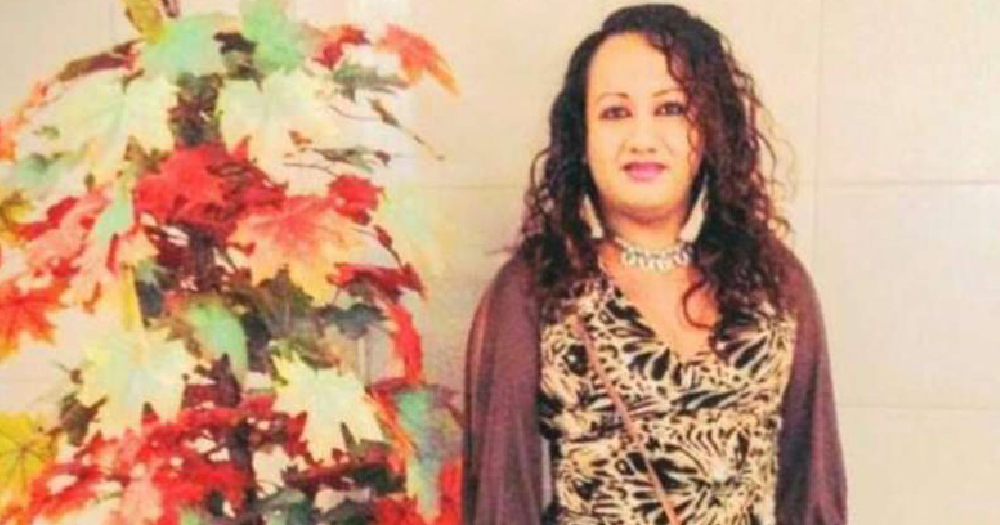A judge sentenced three police officers to 20 years in prison each after they were found guilty for the aggravated homicide of a trans woman in El Salvador.
On January 31, 2019, three police officers arrested 29 year-old trans woman Camila Díaz Córdova while responding to a public order complaint. After they detained her, they allegedly assaulted her before throwing her out of a moving vehicle.
Díaz Córdova died from her injuries at Rosales National Hospital in San Salvador on February 3. Following her death, a court was presented with evidence against the three officers including their vehicle’s GPS tracking data and her autopsy report.
In the nation’s first conviction regarding a homicide case involving a trans victim, the three police officers were found guilty by the courts on July 28, 2020, and each sentenced to spend twenty years in prison. The judge further dismissed an additional hate crime conviction on the basis there was insufficient evidence.
A director at Human Rights Watch, José Miguel Vivanco, reacted to the verdict, “This landmark ruling is much needed in a country where LGBT Salvadorans and their families rarely see justice for violent crimes. The outcome of Camila’s case sends a powerful message to Salvadoran society that anti-LGBT violence will not be tolerated.”
Over the years, El Salvador has witnessed a stark rise in LGBT+ related murder cases, many of which involved trans people. Between October 2019 and April 2020, seven trans women and two gay men were victims to homicide crimes.
Within the space of one week in 2019, two trans people were killed in El Salvador, Díaz Córdova and Lolita- who died after she was attacked with a machete on February 8. Among the violence targeted at the trans community, prosecutors have tried to classify three LGBT+ killings as hate crimes following changes to the Penal Code made by the Salvadoran Legislative Assembly in 2015, which recognises LGBT+ murders as “aggravated homicides”.
Following Díaz Córdova’s death, it was reported she previously claimed asylum in the US in August 2017 because she feared for her life as a trans woman in El Salvador. However, US Immigration and Customs Enforcement authorities refused her application and deported her in November of the same year because they did not accept she was in danger.
While many people from the LGBT+ community leave their home country to find safety abroad, trans people in America have been speaking out against police brutality and transphobic crimes across the country.
The Human Rights Campaign’s director of community engagement for its Transgender Justice Initiative, Tori Cooper, stated, “Our community needs allies. … This violence cannot continue and we must all ask ourselves why our nation is allowing this epidemic of violence to continue, and how we can come together to ensure trans people, especially Black transgender women, can live their lives without fear of joining this long list of lives stolen.”
Cooper addressed transphobic violence while expressing his grief over the murder of Black trans woman, Aja Raquell Rhone-Spear. On July 25, she was fatally stabbed while attending a vigil for a man who was shot in the area, according to a Portland Police Department press release.
The director further shared, “I, alongside HRC and so many others, am mourning the loss of Aja Raquell Rhone-Spears — who was not even able to attend a vigil to mourn without risk of death.”
As people take a stand against police violence and institutionalised discrimination across America as part of the Black Lives Matter movement, the Black trans community are raising awareness around the horrific crimes they have been subjected to.
During a rally outside the Stonewall Inn, trans activist Ianne Fields Stewart stated, “You say you honour us. You say you uplift us. Then where the f*ck are we?”
© 2020 GCN (Gay Community News). All rights reserved.
Support GCN
GCN is a free, vital resource for Ireland’s LGBTQ+ community since 1988.
GCN is a trading name of National LGBT Federation CLG, a registered charity - Charity Number: 20034580.
GCN relies on the generous support of the community and allies to sustain the crucial work that we do. Producing GCN is costly, and, in an industry which has been hugely impacted by rising costs, we need your support to help sustain and grow this vital resource.
Supporting GCN for as little as €1.99 per month will help us continue our work as Ireland’s free, independent LGBTQ+ media.

comments. Please sign in to comment.